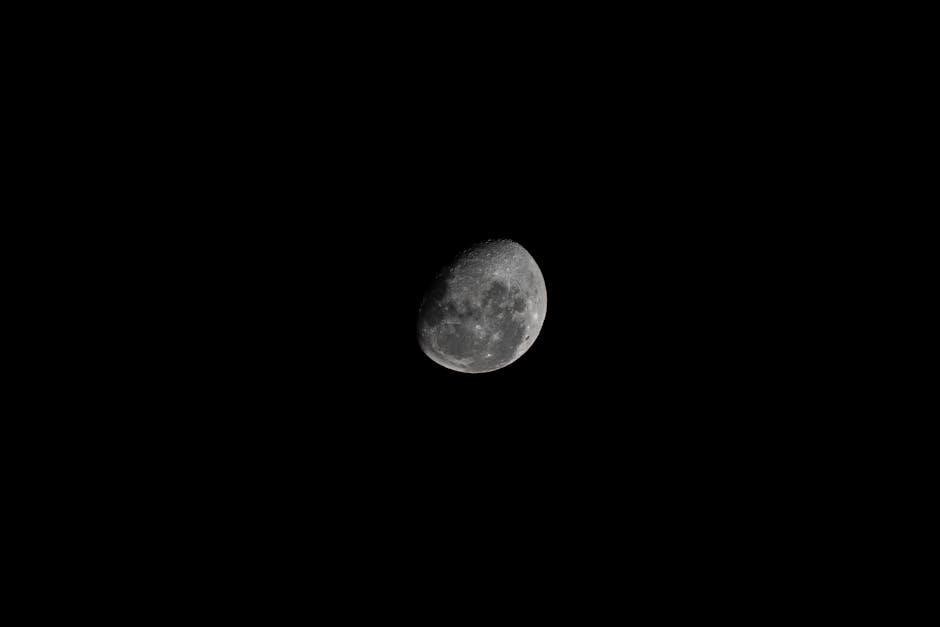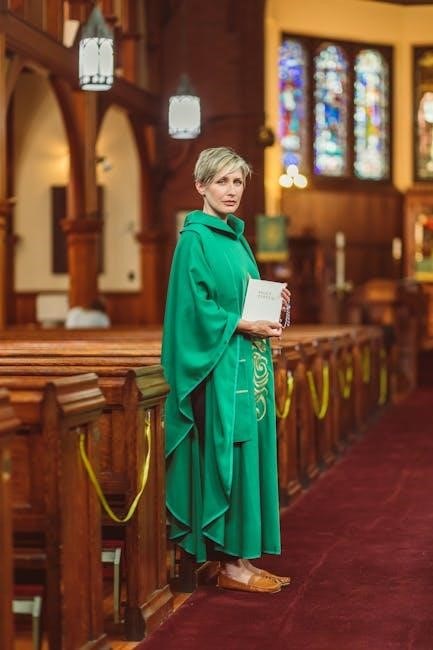Ocean Vuong’s debut novel, On Earth We’re Briefly Gorgeous, is a poignant letter from a son to his mother, exploring identity, family, and immigration through poetic prose.
1.1. Overview of the Book
On Earth We’re Briefly Gorgeous is Ocean Vuong’s debut novel, written as a poignant letter from a son to his mother, who cannot read. The book explores themes of identity, family, and immigration through poetic prose. It delves into the complexities of the narrator’s experiences growing up Vietnamese American, grappling with trauma, love, and belonging. Published in 2019, the novel has received critical acclaim for its lyrical style and emotional depth, making it a significant work in contemporary literature.
1.2. Author Background: Ocean Vuong
Ocean Vuong, born in 1988 in Ho Chi Minh City, is a Vietnamese American poet and novelist. Raised on a rural farm, his experiences deeply influenced his writing. Vuong gained recognition for his poetry collection Night Sky with Exit Wounds, which won the Whiting Award. On Earth We’re Briefly Gorgeous marks his debut novel, blending poetic prose with raw, emotional storytelling. His work often explores identity, family, and cultural displacement, earning him a place as a prominent voice in contemporary literature.

1.3; Historical Context and Themes
On Earth We’re Briefly Gorgeous is set against the backdrop of the Vietnamese diaspora, exploring themes of identity, immigration, and intergenerational trauma. The novel reflects on the aftermath of the Vietnam War and its impact on displaced families. Through the narrator’s journey, Vuong examines the complexities of belonging, cultural dislocation, and the resilience of refugees. The book also delves into the struggles of queerness and race, weaving personal and collective histories into a powerful narrative of survival and memory.
Literary Style and Structure
Ocean Vuong’s novel blends poetic prose with an epistolary format, creating a lyrical and deeply personal narrative. Its non-linear structure mirrors the fragmented nature of memory, enhancing emotional depth and intimacy.
2.1. Epistolary Format: A Letter to the Mother
The novel is structured as a letter from the narrator, Little Dog, to his mother, blending confession, reflection, and storytelling. This intimate format creates a deeply personal narrative, emphasizing unspoken emotions and fragmented communication. The epistolary style allows Vuong to explore themes of identity, memory, and longing, while the direct address to the mother underscores the complexities of their relationship. This structure also serves as a cathartic exercise, enabling Little Dog to process his experiences and find voice in a world marked by silence and disconnection.
2.2. Use of Poetry in Prose
Ocean Vuong’s prose is deeply infused with poetic elements, creating a lyrical and evocative narrative. His background as a poet is evident in the novel’s language, which often feels like a seamless blend of poetry and storytelling. The use of metaphor, simile, and imagery adds emotional depth, while the fragmented sentences and rhythmic cadences evoke a poetic quality. This fusion enriches the storytelling, allowing themes of identity, memory, and trauma to resonate more powerfully. The poetic prose also mirrors the narrator’s introspective voice, crafting a unique and hauntingly beautiful reading experience.
2.3. Non-Linear Narrative Structure
The novel employs a non-linear narrative structure, weaving together fragmented memories, present-day reflections, and emotional echoes. This fluid, unconventional approach mirrors the narrator’s inner world, where past and present blur. By jumping between timelines, Vuong creates a sense of timelessness, emphasizing the enduring impact of childhood experiences. The structure also reflects the disjointed nature of memory, allowing the reader to piece together the narrator’s story alongside him. This technique enhances the emotional depth and intimacy of the narrative, drawing readers into the complexities of Little Dog’s journey.

Major Themes Explored

The novel delves into themes of identity, family trauma, race, class, immigration, and belonging, weaving them into a poignant exploration of the human condition.
3.1. Identity and Belonging
The novel profoundly explores the protagonist’s struggle to reconcile his Vietnamese heritage with his American upbringing, grappling with cultural displacement and the fragmented self. Little Dog’s journey reflects the tension between identities, as he navigates his queerness, family history, and the search for belonging in a world where he often feels marginalized. The narrative delves into the pain of being caught between two cultures, while simultaneously yearning for acceptance and connection. This theme resonates deeply, offering a powerful commentary on the immigrant experience and the quest for self-definition.
3.2. Family Dynamics and Trauma
The novel delves into the strained relationship between Little Dog and his mother, shaped by her past traumas and heroin addiction. Their bond is fraught with emotional distance and unspoken pain, reflecting the intergenerational trauma of war and displacement. The absence of a father figure exacerbates the family’s dysfunction, while the mother’s struggles mirror broader societal challenges faced by immigrants. Through their complex dynamics, Vuong portrays the lasting impact of unresolved wounds and the struggle for healing within fragmented family ties, highlighting the resilience needed.
3.3; Race, Class, and Immigration
The novel explores the intersections of race, class, and immigration through Little Dog’s experiences as a Vietnamese refugee in America. The narrator grapples with racial identity, cultural dislocation, and the economic struggles faced by immigrants. Vuong highlights how systemic inequalities and xenophobia shape the lives of marginalized communities. The immigrant experience is portrayed as a complex interplay of resilience and vulnerability, reflecting the broader societal challenges of belonging and survival in a hostile environment. This theme underscores the book’s critique of systemic oppression and its impact on individual lives and families.

Character Analysis
The novel delves into the complexities of its characters, exploring their emotional depths and relationships. Little Dog, the narrator, and his mother are central, with secondary characters adding layers to the story’s emotional landscape. Their struggles and growth reveal profound insights into human resilience and vulnerability. The characters’ dynamics drive the narrative, offering a nuanced exploration of identity, family, and societal influences.
4.1. The Narrator: Little Dog
The narrator, Little Dog, is the protagonist and emotional core of the novel. His voice is both poetic and deeply personal, as he writes a letter to his mother. Through his journey, Little Dog navigates identity, race, and queerness, offering a raw and introspective perspective. His growth from childhood to adulthood is marked by resilience and vulnerability, making him a relatable and compelling character. Little Dog’s storytelling bridges generations and cultures, reflecting his complex role as both observer and participant in his family’s history. His narrative is a testament to the power of language and memory.
4.2. The Mother: A Complex Figure
The mother in On Earth We’re Briefly Gorgeous is a deeply complex and multifaceted character, embodying both strength and vulnerability. Her past in Vietnam and her struggles in America shape her identity, often leaving her caught between resilience and despair. Despite her tough exterior, her inner world is marked by pain and love, particularly for her son. The mother’s character is defined by her silence, which serves as both a shield and a burden, reflecting the intergenerational trauma and sacrifice that define her role in the family. Her presence is central to the narrator’s journey.

4.3. Secondary Characters and Their Roles

Secondary characters in On Earth We’re Briefly Gorgeous play pivotal roles in shaping the narrator’s identity and experiences. Trevor, the narrator’s first love, represents both tenderness and the harsh realities of masculinity. Ms. Tori, the teacher, embodies kindness and encouragement, fostering the narrator’s intellectual growth. These characters, though not central, provide depth and contrast, highlighting the narrator’s journey through love, trauma, and self-discovery. Their presence underscores the interconnectedness of human experiences and the ways in which others influence our understanding of ourselves. Each character adds layers to the narrative’s emotional landscape.
Symbolism and Imagery
The novel masterfully blends vivid imagery with symbolic elements, such as flowers and fire, to explore themes of growth, decay, and transformation. Light and darkness are used to symbolize hope and struggle, while natural imagery reflects the fragility and beauty of life. These symbols weave together to create a rich, layered narrative that underscores the emotional and psychological depth of the story.
5.1. The Metaphor of Flowers and Nature
In On Earth We’re Briefly Gorgeous, flowers and nature serve as potent metaphors for life’s transient beauty and resilience. The lotus, a symbol of rebirth, mirrors the narrator’s journey of self-discovery and healing. Orchids, delicate yet enduring, reflect the fragility and strength of love. Nature’s cycles—growth, decay, renewal—echo the human experiences of loss, identity, and transformation. These floral and natural imagery are woven into the narrative to evoke emotional depth and underscore the interconnectedness of personal and collective histories, creating a vivid tapestry of memory and meaning.
5.2. The Significance of Fire and Destruction
Fire and destruction in On Earth We’re Briefly Gorgeous symbolize both devastation and transformation. The burning of letters and memories represents an attempt to erase pain, yet it paradoxically preserves the past. Fire also mirrors the cyclical nature of trauma, where destruction begets rebirth. This duality underscores the narrator’s struggle to reconcile loss with healing, as flames consume but also purify. Through fire, Vuong illustrates the enduring impact of violence and the resilience of the human spirit, blending destruction with the promise of renewal and understanding.
5.3. The Use of Light and Darkness
In On Earth We’re Briefly Gorgeous, light and darkness serve as powerful metaphors for emotional and psychological states. Light often symbolizes hope, clarity, and connection, while darkness represents trauma, secrecy, and disconnection. The interplay between these elements reflects the narrator’s journey toward self-understanding and healing. Moments of tenderness and love are illuminated, contrasting with the shadows of pain and loss. Vuong’s use of light and darkness underscores the duality of human experience, where both elements coexist to create a profound narrative of resilience and transformation.
Critical Reception and Awards
On Earth We’re Briefly Gorgeous received widespread critical acclaim for its lyrical prose and emotional depth. It was longlisted for the 2019 National Book Award for Fiction and nominated for the PEN/Hemingway Award. Reviewers praised its innovative storytelling and raw exploration of identity, family, and race. The novel has been celebrated as a groundbreaking work in contemporary literature, earning Vuong a reputation as a major literary voice.
6.1. Longlisting for the National Book Award
On Earth We’re Briefly Gorgeous was longlisted for the 2019 National Book Award for Fiction, a prestigious recognition that highlighted its lyrical prose and emotional depth. This acknowledgment underscored the novel’s exploration of identity, family, and race, resonating with both critics and readers. The longlisting elevated Ocean Vuong’s profile, solidifying his place as a rising talent in contemporary literature and drawing widespread attention to his unique voice and storytelling style.

6.2. PEN/Hemingway Award Nomination
Ocean Vuong’s debut novel, On Earth We’re Briefly Gorgeous, earned a nomination for the 2019 PEN/Hemingway Award, celebrating exceptional debut fiction. This accolade recognized the novel’s poetic prose and its poignant examination of identity, family, and race. The nomination highlighted the book’s emotional depth and innovative storytelling, marking Vuong’s emergence as a significant literary talent.
6.3. Reviews from Major Literary Platforms
On Earth We’re Briefly Gorgeous received widespread acclaim from major literary platforms. Critics praised its lyrical prose, emotional depth, and nuanced exploration of identity, family, and race. The New York Times named it one of the “10 Best Books of 2019,” while The Washington Post highlighted its “stunning” and “unflinching” storytelling. Reviewers noted its innovative blend of poetry and prose, with many calling it a groundbreaking work in contemporary literature. The novel’s raw honesty resonated deeply with readers and critics alike.

Cultural and Social Impact
The novel became a cultural phenomenon, offering profound insights into the Vietnamese diaspora and queer identity. Its raw storytelling resonated globally, enriching contemporary literature with fresh perspectives.
7.1. Representation of the Vietnamese Diaspora
Ocean Vuong’s novel vividly captures the Vietnamese diaspora’s struggles, offering a poignant portrayal of displacement, identity, and resilience. Through Little Dog’s narrative, the book explores intergenerational trauma, cultural dislocation, and the complexities of belonging. The mother’s character embodies the strength and pain of refugees, while the narrator’s journey reflects the search for self amid cultural fragmentation; The novel’s unflinching authenticity resonates deeply, providing a voice for underrepresented experiences and fostering global understanding of the Vietnamese diaspora’s multifaceted story.
7.2. Exploration of Queer Identity
Ocean Vuong’s novel profoundly explores queer identity through the narrator’s journey of self-discovery and love. The lyrical prose delves into the complexities of desire, vulnerability, and acceptance, offering a deeply personal and universal portrayal of queer experience. The narrator’s relationships, particularly with Trevor, are rendered with tenderness and honesty, reflecting the beauty and pain of navigating identity. Vuong’s work challenges societal norms and offers a powerful representation of queer life, resonating with readers seeking validation and connection in their own journeys.
7.3. Contribution to Contemporary Literature
On Earth We’re Briefly Gorgeous has made a significant impact on contemporary literature by blending poetic prose with raw storytelling. Vuong’s unique voice and exploration of identity, trauma, and migration resonate deeply, offering fresh perspectives on the human condition. The novel’s success has inspired a new wave of writers to experiment with form and narrative. By addressing themes often overlooked, Vuong’s work fills a critical gap in literature, ensuring diverse voices are heard. Its acclaim, including National Book Award recognition, solidifies its influence on modern literary culture.

Personal Reflections and Author’s Intent
Ocean Vuong’s intent was to explore the human condition through raw, poetic storytelling, giving voice to silenced narratives and bridging personal and universal experiences.
8.1. Ocean Vuong’s Personal Experiences
Ocean Vuong’s personal experiences deeply shaped On Earth We’re Briefly Gorgeous. Born to Vietnamese refugees in America, Vuong’s life was marked by displacement, economic hardship, and the challenges of cultural identity. His relationship with his mother, a central theme in the novel, was fraught with both love and trauma. Vuong’s queer identity also influenced his perspective on belonging and self-discovery. These elements are woven into the narrative, creating a deeply personal yet universally resonant story.
8.2. The Process of Writing the Novel
Ocean Vuong’s process of writing On Earth We’re Briefly Gorgeous was deeply introspective. He began by writing fragments of poetry and prose, gradually weaving them into a cohesive narrative. Vuong has shared that the novel’s epistolary format emerged organically, serving as a bridge to explore his relationship with his mother. The writing process was both therapeutic and challenging, blending memoir-like honesty with fictional elements. Vuong’s background in poetry influenced the lyrical prose, creating a unique voice that balances vulnerability and beauty.
8.3. The Significance of the Title
The title On Earth We’re Briefly Gorgeous reflects the novel’s exploration of fleeting beauty and the impermanence of life. It captures the fragility of human existence, echoing the narrator’s journey of self-discovery and the transience of connection. The phrase, both poetic and haunting, underscores the beauty found in vulnerability and the passing nature of time. It resonates deeply with the novel’s themes of identity, family, and the search for meaning, encapsulating the emotional depth of the story in a single, evocative line.

